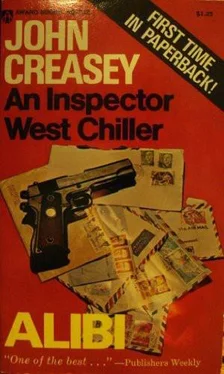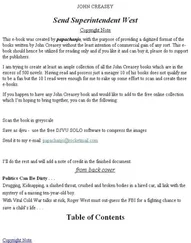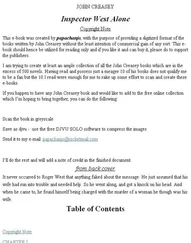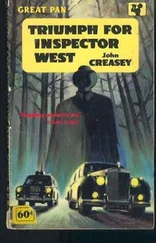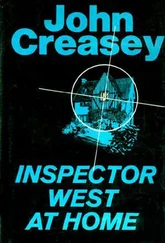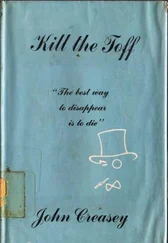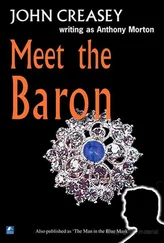John Creasey - Alibi
Здесь есть возможность читать онлайн «John Creasey - Alibi» весь текст электронной книги совершенно бесплатно (целиком полную версию без сокращений). В некоторых случаях можно слушать аудио, скачать через торрент в формате fb2 и присутствует краткое содержание. Жанр: Старинная литература, на русском языке. Описание произведения, (предисловие) а так же отзывы посетителей доступны на портале библиотеки ЛибКат.
- Название:Alibi
- Автор:
- Жанр:
- Год:неизвестен
- ISBN:нет данных
- Рейтинг книги:4 / 5. Голосов: 1
-
Избранное:Добавить в избранное
- Отзывы:
-
Ваша оценка:
- 80
- 1
- 2
- 3
- 4
- 5
Alibi: краткое содержание, описание и аннотация
Предлагаем к чтению аннотацию, описание, краткое содержание или предисловие (зависит от того, что написал сам автор книги «Alibi»). Если вы не нашли необходимую информацию о книге — напишите в комментариях, мы постараемся отыскать её.
Alibi — читать онлайн бесплатно полную книгу (весь текст) целиком
Ниже представлен текст книги, разбитый по страницам. Система сохранения места последней прочитанной страницы, позволяет с удобством читать онлайн бесплатно книгу «Alibi», без необходимости каждый раз заново искать на чём Вы остановились. Поставьте закладку, и сможете в любой момент перейти на страницу, на которой закончили чтение.
Интервал:
Закладка:
“We can have a drink, or a meal, or you can come here,” Roger said quietly. “I can telephone your mother and say I’ll be late.”
“Well, no need for that, anyhow,” said Scoop. “She’s gone to the pictures with Richard and Lindy, and won’t be back until elevenish. So home would do fine tonight.”
“I’ll be there in half an hour,” promised Roger.
He was outside and in his car within five minutes, and within twenty was at one end of Bell Street, Chelsea, the street where he and Janet had lived since their marriage, nearly thirty years ago. At one end was the wide thoroughfare of King’s Road, at the other another street which led to the Chelsea Embankment. There was a drizzle over the Thames and everywhere; the flowers and grass in the front gardens looked as if they were covered with dew; roofs and windows, fences and railings were all smeared with moisture; it was a most depressing day for May.
Roger parked out of sight of his house; he did not want to be early. If he knew Martin, the boy would be preparing a simple meal, and would like to have everything ready. He was not yet anxious, for Martin sometimes made mountains out of molehills, but he was eager to know what this S.O.S. was about. If it were something that could not be discussed about in the family, it might indeed be a cause for anxiety, for Janet got on remarkably well with her two sons.
One thing had been obvious from the moment he had heard that Janet was out with Richard and his girl-friend. Richard had deliberately taken his mother off to allow Scoop to have this “personal talk”.
Roger moved away, and pulled into the garage at the side and slightly to the front of the house in Bell Street. It was a stucco-fronted building, almost square, with bow windows. Creepers and ramblers grew on the walls, the privet hedge was neatly trimmed, and so was the small front lawn. Late wallflowers and tulips looked bedraggled and forlorn in the borders.
Roger went in by the back door, to find Martin at the kitchen sink. He turned round and gave Roger a slow smile. His face was broad, like his forehead, and but for a broken nose—from an injury caused by boxing at school —he would have been remarkably handsome, although more like his mother than Roger. But he had Roger’s full, generous-looking lips.
“Hi. Dad!”
“Hi, Scoop. What are you cooking?”
“Steak and sausages and chips. Okay?”
“Sounds wonderful. I had no lunch.” Roger went and contemplated the steaks and sausages under the grill, and saw the pan of oil already simmering, and the pile of chipped potatoes ready to be cooked. “Ten minutes?”
Fine.”
Roger went upstairs, washed, actually had time to sit back in the bedroom armchair for a few minutes before rejoining his son. The steaks and sausages were served and keeping warm under the grill; Scoop lifted a basket- scoop of golden-brown chips and put them in a deep, white, porcelain dish.
“Ever seen better French fries?” he boasted.
“Never. But what’s the matter with plain English?”
“It’s very out, to call chips chips,” Martin declared. “Sit down. Pop.”
Roger sat at the big kitchen table, covered with a deceptively linen-like plastic tablecloth, and Martin placed a huge plate of food in front of him, then sat down opposite with as heaped a plate for himself.
Suddenly, he pushed plate and knife and fork away.
“Dad, I want to emigrate. Leave England, that is. For keeps. That is for keeps as far as I know. I’ve felt like it for a long time. Hate to seem ungrateful for all you and Mum have done for me, but—” He broke off, and gulped. “Sorry, Dad.”
Roger was cutting through steak is Martin spoke, and he speared a piece on to his fork and raised it to his lips.
“You won’t emigrate anywhere if you starve to death,” he remarked.
“Eh? Oh.” Martin gave an almost sheepish grin. “I—er —I suppose you’re right.” He pulled his plate back again. “Aren’t you shocked?”
“I’m mildly surprised,” Roger declared. “But shocked — no. Why should I be?”
“I—er—I thought you’d hate the idea.”
“It didn’t occur to you that I might be glad to see the back of you?” There was a teasing gleam in his eyes and a teasing tone in his voice, but suddenly it occurred to him that this was no time to tease, that for a moment at least, Martin was taking that remark seriously. Quite suddenly the years rolled away and Roger was jesting with the “child” and immediately reassuring him; “teasing” had been a feature of their early family life and still was; he had forgotten that Martin could be led on almost as — easily as Richard.
“No,” Scoop said. “It hadn’t.”
“That’s good,” said Roger. “I didn’t quite mean what I said.”
Martin smiled with surprisingly evident relief.
“ That ’ s good too!”
“Where do you plan to go?” inquired Roger, choosing “plan” deliberately, thinking it would help to reassure Scoop that there would be no opposition to overcome with him. But it was already evident why he had wanted this talk alone, for Janet would hate the idea of emigration.
“Australia,” Scoop answered promptly.
“I suppose that’s as good as any and no doubt better than most,” remarked Roger.
He ate in silence for a few moments, and so did Martin, whose hunger was getting the better of him. He, Roger, was in fact feeling a delayed shock effect. He had known for years that Martin wasn’t too happy in England, that life hadn’t gone too well for him, but he had seen this in terms of getting a better job, or having a breakthrough with his painting. Scoop spent every moment of his spare time with brush and easel.
“Really not shocked?” Martin asked after a while.
“No, Scoop. Not shocked, but I think Mummy will be.”
“Didn’t I know it!” Scoop could hardly have sounded more rueful.
“How long has it been since you made up your mind?”
“Oh, about a month,” Scoop told him, then coloured and went on with a rush, “I wanted to be absolutely sure before I said anything, so I’ve been along to Australia House, and seen the New South Wales people and made an application for an assisted passage—it only costs ten pounds. Did you know?”
“Yes,” said Roger, and added rather heavily, “so you’ve gone as far as that?”
Scoop nodded, without saying a word.
“Decided what ship yet?” asked Roger.
“The Northern Star, ” answered Scoop. “It’s due to sail on June 28th.” He picked up his fork only to put it down again, almost awkwardly. “Dad, I—I had to go ahead. I knew if I talked to you you’d have to tell Mummy, you wouldn’t keep that kind of secret from her, and if Mummy had known she would have worked on you—well, on me too—to dissuade me. And—and well, I thought if everything was cut and dried then there couldn’t be so much arguement—er—discussion, I mean, and perhaps it wouldn’t hurt so much.”
Roger looked at him steadily; and looking, he saw the tears close to the boy’s eyes, a boy of twenty-one, a young man, so fearful of hurting that he had felt constrained to keep this tremendous yearning to himself. He felt a great warmth of feeling towards and a compelling need to reassure him and yet he did not quite know what to say.
He was still undecided when the telephone rang. Martin’s brow furrowed and he muttered, “Oh, damn!”
Chapter Five
OFFER
The last thing Roger wanted at that moment was a summons to the Yard, and Martin’s muttered imprecation told him how his son felt. He pushed his chair back, and for some reason was more aware of the shock of the boy’s news than he had been earlier. Before he was on his feet, Martin was up and halfway to the extension just in the passage by the kitchen door.
Читать дальшеИнтервал:
Закладка:
Похожие книги на «Alibi»
Представляем Вашему вниманию похожие книги на «Alibi» списком для выбора. Мы отобрали схожую по названию и смыслу литературу в надежде предоставить читателям больше вариантов отыскать новые, интересные, ещё непрочитанные произведения.
Обсуждение, отзывы о книге «Alibi» и просто собственные мнения читателей. Оставьте ваши комментарии, напишите, что Вы думаете о произведении, его смысле или главных героях. Укажите что конкретно понравилось, а что нет, и почему Вы так считаете.
